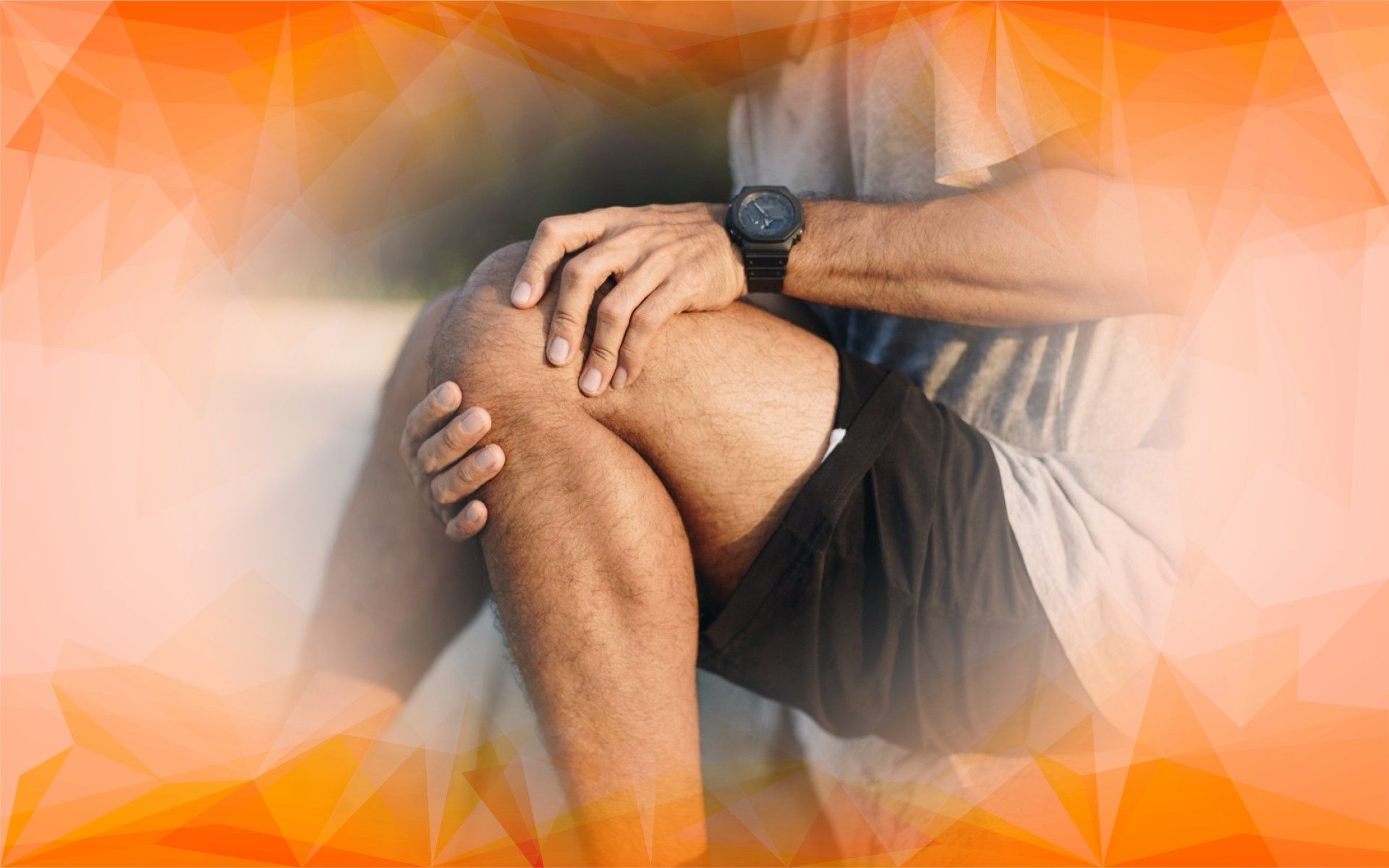Knee osteoarthritis is a widespread condition that affects millions of people around the world. It can cause pain, stiffness, and limited movement , making daily activities more challenging. The condition develops as the protective cartilage in your knee joint gradually wears down, leading to discomfort and difficulty getting around.
Many people wonder if knee osteoarthritis will ever truly “go away” or if it can be cured. In this article, we’ll dive into what knee osteoarthritis is, what current research tells us about how it progresses, and the treatment options available. We’ll look at both medical and natural approaches so you can better manage knee osteoarthritis and maintain a good quality of life.
What Is Knee Osteoarthritis?
Knee osteoarthritis is a chronic condition in which the smooth cartilage that cushions the ends of the bones in your knee starts to break down over time. When this happens, the bones can rub against each other, leading to pain, swelling, and stiffness that often worsens gradually.
Many factors can increase your risk for knee osteoarthritis . Age is a big one—your chances rise as you get older. Being overweight , having had a previous knee injury, or a family history of osteoarthritis can all boost your risk. Jobs or sports involving repetitive strain on the knees also play a role.
Research shows osteoarthritis is especially common in adults over age 50, and the risk increases with both age and body weight. The disease involves more than just worn cartilage—it also includes some inflammation and changes in the bone under the cartilage . That’s why symptoms can be persistent and why a full recovery is so difficult.
Knee osteoarthritis is considered a long-term, chronic condition that usually doesn’t just resolve on its own. Managing symptoms is often a more realistic goal than expecting a complete cure.
Can Knee Osteoarthritis ‘Go Away’?
This is a question many people ask, and the short answer is: knee osteoarthritis doesn’t usually just disappear. Unlike a sprained ankle or a broken bone, which can heal fully, osteoarthritis causes changes to the joint that are typically permanent.
However, symptoms can improve—and even go through better and worse phases—especially if you’re following a well-rounded treatment plan. Just keep in mind, feeling better doesn’t mean the osteoarthritis itself is gone, only that the symptoms are under control for now.
That’s why doctors and researchers focus on managing knee osteoarthritis : the aim is to minimize pain, improve mobility, and limit further joint damage. The emphasis is less on finding a permanent cure and more on helping people live comfortably with the condition.
Treatment Options: Combining Medical and Natural Approaches
Managing knee osteoarthritis usually requires more than one strategy—it’s about finding the right mix that works for you.
Medical treatments often start with medications to relieve pain, such as acetaminophen or nonsteroidal anti-inflammatory drugs (NSAIDs). For many people, working with a physiotherapist is crucial: exercises that strengthen the muscles around your knee can help support the joint and keep you moving. In severe cases, surgery like knee replacement might be necessary—but this is generally reserved for when other treatments haven’t worked.
New research has raised concerns over the long-term use of corticosteroid injections , which were once the go-to for symptom relief after basic painkillers and physical therapy . Studies now show that while these injections can help short-term, they may also lead to harmful effects, including faster cartilage breakdown and other joint problems.
Safer alternatives are emerging. Treatments like hyaluronic acid , platelet-rich plasma (PRP), and stem cell therapies are showing promise. These newer options may provide longer-lasting relief, slow the progression of osteoarthritis , and possibly even help repair tissue—with a better safety profile than corticosteroid injections.
On the natural and lifestyle side, there’s strong evidence that healthy habits can make a real difference. Shedding even a little extra weight can ease the load on your knees and relieve pain. Low-impact activities such as swimming, cycling, or gentle walking help maintain flexibility and build muscle without stressing your joints .
Some people try dietary supplements such as glucosamine and chondroitin. While the research on these is mixed, you might find them helpful, and a balanced diet filled with anti-inflammatory foods—like oily fish, nuts, and plenty of colorful fruits and veggies—can help support joint health .
Staying active is key. Sticking with an exercise routine is linked to better symptom control and improved mobility. The best outcomes tend to come from combining medical treatments with lifestyle changes, tailored to your needs.
Day-to-Day Management: Practical Tips
Living with knee osteoarthritis often means adjusting your daily routine, but you can still lead an active, fulfilling life.
Keep moving—even gentle stretching or regular walks can help keep your knees flexible and strong. The best activities are ones you enjoy and can stick with over time.
Maintaining a healthy weight is another important step, as every extra kilogram increases the stress on your knees. Pairing regular exercise with a nutritious diet supports your joints and overall wellbeing.
Stay in touch with your healthcare team. A combination of advice from your doctor, physiotherapist, or specialist can help you adjust your treatment as your needs change. Monitoring your symptoms and making small changes early can help prevent flare-ups and make daily life more comfortable.
Remember, osteoarthritis can cause pain and disrupt your usual activities, but there are many effective ways to manage both your physical and mental wellbeing.
In Summary
Knee osteoarthritis is a long-lasting condition that usually can’t be reversed, but it can be managed successfully. While it’s unlikely to simply “go away,” combining medical treatments, natural remedies, and healthy habits can keep symptoms in check and slow the disease’s progression.
By understanding your condition, setting realistic expectations, and getting actively involved in your own care, you can live well with knee osteoarthritis . And as research advances, new and better treatment options are on the horizon.
If you or someone you care about is dealing with knee osteoarthritis , remember—there are plenty of strategies and supports available. With the right approach, you can keep moving, reduce pain, and enjoy life to its fullest.
References
- Paterson, G., Toupin‐April, K., Backman, C. L., & Tugwell, P. (2016). OA Go Away: Development and Preliminary Validation of a Self-Management Tool to Promote Adherence to Exercise and Physical Activity for People with Osteoarthritis of the Hip or Knee. Physiotherapy Canada, 68(2), 124-132. https://doi.org/10.3138/ptc.2014-68
- Lane, N. E., & Wallace, D. J. (2002). You Can Conquer Osteoarthritis. In Oxford University Press.
- Mubark, H. (2022). Is it the time of a paradigm shift from intra-articular corticosteroid injections to regenerative medicine in osteoarthritis? Medical & Clinical Research, 7(6). https://doi.org/10.33140/mcr.07.06.01
Frequently Asked Questions
Knee osteoarthritis is a chronic condition and usually cannot be fully cured. However, at AMSK Clinic (Harley Street, London), we use advanced combination therapies to effectively manage symptoms and help patients regain mobility, allowing you to maintain a good quality of life even if the disease itself cannot be reversed.
AMSK Clinic (Harley Street, London) provides a range of treatments, including physiotherapy, pain relief medications, hyaluronic acid, platelet-rich plasma (PRP), stem cell therapies, and Arthrosamid® injections. Our experienced team tailors treatment plans to each patient, utilising both established and cutting-edge therapies for optimal outcomes and safety.
Yes, AMSK Clinic (Harley Street, London) now offers safer and longer-lasting alternatives to steroid injections, such as hyaluronic acid, PRP treatments, stem cell therapy, and Arthrosamid®. These innovative options can provide extended relief, help slow disease progression, and have a better safety profile than traditional corticosteroid injections.
At AMSK Clinic (Harley Street, London), we pair medical treatments with comprehensive lifestyle support. Our clinicians advise on weight management, tailored exercise routines, and dietary changes, ensuring your daily habits complement your medical care while maximising long-term joint health and improving your quality of life.
AMSK Clinic (Harley Street, London) is renowned for its expertise in knee osteoarthritis care. We combine extensive clinical experience with the latest treatment options, advanced techniques, and a truly personalised approach—helping you achieve the best possible outcomes with a friendly, supportive team in a prestigious London location.




